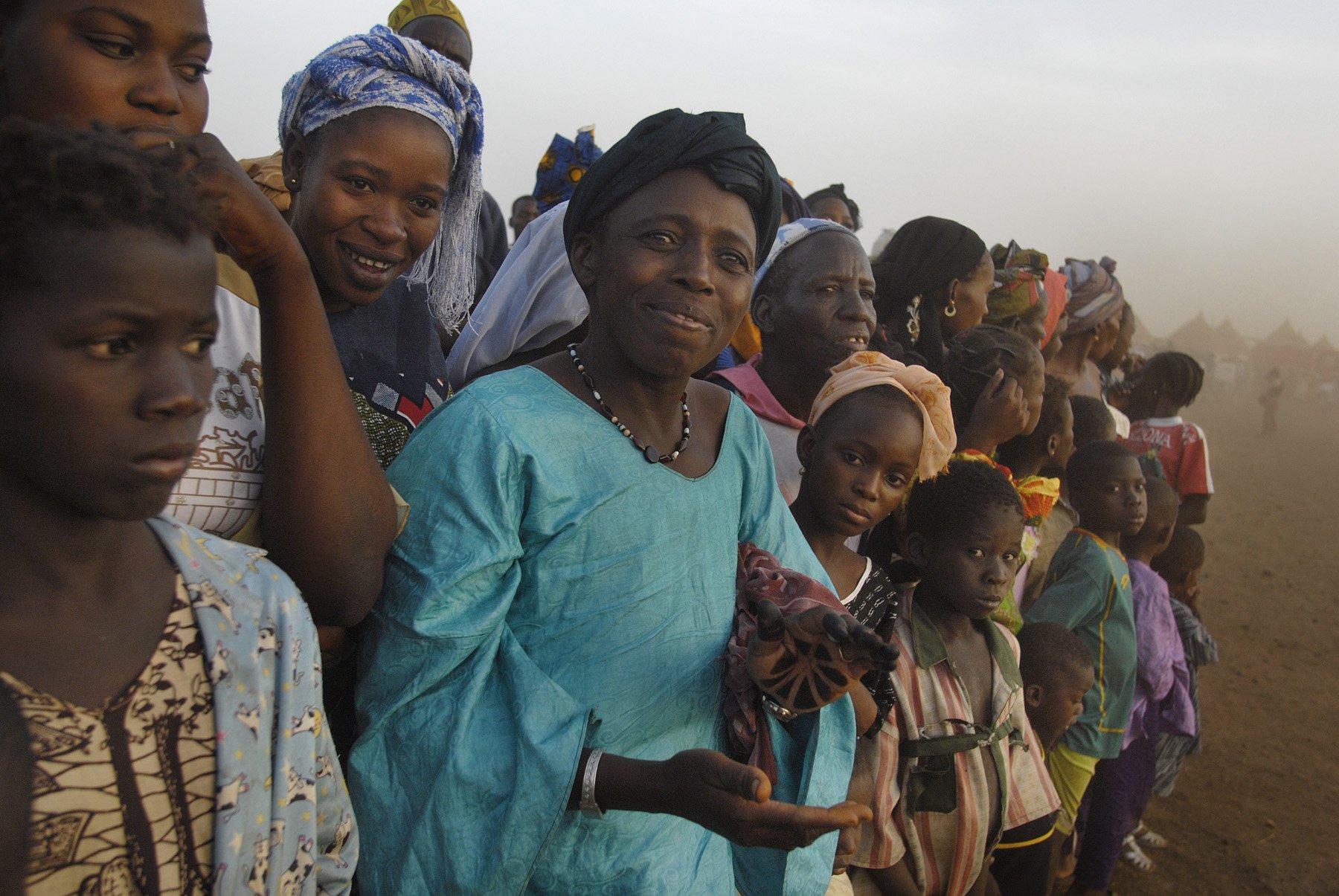A new report, titled “They will feed us! A people’s route to African food sovereignty,” has been launched on occasion of International Food Sovereignty Day, shedding light on recent disturbing developments promoting corporate interests in food systems in Africa.
This report emerges from an autonomous assessment conducted by African peasant and civil society organisations*. It provides a critical analysis of the process and content of the 2021 UN Food Systems Summit (UNFSS) and the Dakar 2 – ‘Feed Africa Summit’ in 2023, which developed “national pathways” and “compacts” respectively to underpin a corporate-led, industrial food system transformation in Africa.
The UNFSS and Dakar 2 Summit sought to initiate a global process of food system transformation, but their approaches have been strongly criticized as undemocratic, opaque and illegitimate. African governments were urged to develop “national pathways” and “national compacts,” often favoring modernisation and green revolution approaches coupled with foreign private investment, over supporting local peasant agroecology and territorial markets.
Well aware that Africa’s bountiful natural resources and markets are a key object of corporate and geo-political interests, African peasant organisations and civil society organisations have conducted their autonomous assessment based on case studies in five countries – Mali, Republic of the Congo, Kenya, Zambia and Morocco – to evaluate the coherence, effectiveness and inclusivity of the national pathways and compacts put forth by their respective governments.
The research examined both the development process and content of the pathways and compacts and compared them to the proposals advocated for by social movements.
Key findings reveal a pressing need for supporting farmers’ seed systems, promoting farmer-led agroecology, ensuring access to land, and protecting the rights of women, Indigenous Peoples and youth in food systems.
In a nutshell:
- Policy incoherence: The national pathways and compacts have added additional layers to the already confusing situation of multiple national policies and programmes. In fact, all the case study countries already have different instruments in place to guide their food policy processes, whose implementation should be supported.
- External intrusion: The fact that most of these initiatives are promoted by external actors is an additional source of concern. External actors—the UNFSS Coordination Hub, FAO, AGRA, Bill & Melinda Gates Foundation, and others—are playing an undue role in shaping policy processes in many African countries. There is no accountability framework in place and, to make it worse, the nature of their involvement in decision-making is obscure to say the least.
- Green revolution agenda: the national pathways and compacts mostly contradict the rights and demands of civil society and peasant organisations. They prioritise the path of “modernisation,” which accelerates environmental collapse and intensifies the exploitation of marginalised groups, depriving them of their rights. It is crucial to challenge the narrative of corporate-led industrial agriculture, emphasizing that small-scale family farmers are the backbone of Africa’s food supply and promoting people’s agroecology as the route towards African food sovereignty.
- Eroding multilateralism: The UNFSS and Dakar2 Summit are seen as the latest in a series of assaults on multilateral decision-making and government accountability. The UNFSS is seen as an attempt to sideline the UN Committee on World Food Security (CFS), the most inclusive global intergovernmental forum mandated to discuss and decide on food issues in a human rights framework. The CFS is the only space in the UN system that includes a clear, autonomous and self-organised mechanism for civil society participation, the Civil Society and Indigenous Peoples Mechanism (CSIPM).
The report concludes that supporting farmers’ seed systems and farmer-led agroecology, guaranteeing access to land, defending the full inclusion of women and youth in food systems, strengthening territorial markets and making sure that small-scale farmers can access them, strengthening social protections like crop insurance or minimum support prices, and deepening participatory and democratic policy-making processes, among others, are vital building blocks of a better food system. Indeed, the damage wrought by these externally-initiated food policy initiatives was largely contained in countries like Mali where there is a well-organized peasant movement with a a strong tradition of interaction with government.
Also Read: Policy Brief: African Civil Society Assessment of the UNFSS National Pathways
Building genuinely just and sustainable food systems requires that fundamental economic assumptions be questioned, human rights be protected, and power be rebalanced. Across the African continent, millions of peasants, family farmers, pastoralists, fisherfolk, Indigenous communities, and agricultural labourers are actively engaged in feeding the majority of the population and aspiring to biodiverse, climate-resilient and community-managed food systems. What is required now is to support and listen to these communities. Putting transformation, food sovereignty and agroecology into practice will mean confronting corporate power and building the strength of people’s movements.
The report was mandated and validated by the inclusive African CSIPM popular consultation space working through a regional task force and country teams Including ROPPA, La Via Campesina Africa, CNOP-Mali, CNOP-Congo, the Zambia Alliance for Agroecology and Biodiversity (ZAAB), the National Federation of the Agricultural Sector of the Moroccan Labour Union, Habitat International Coalition, the Mazingira Institute, BIBA Kenya, and the World March of Women in Kenya, among others.
Cover Photo Credit: Tineke D’Haese

